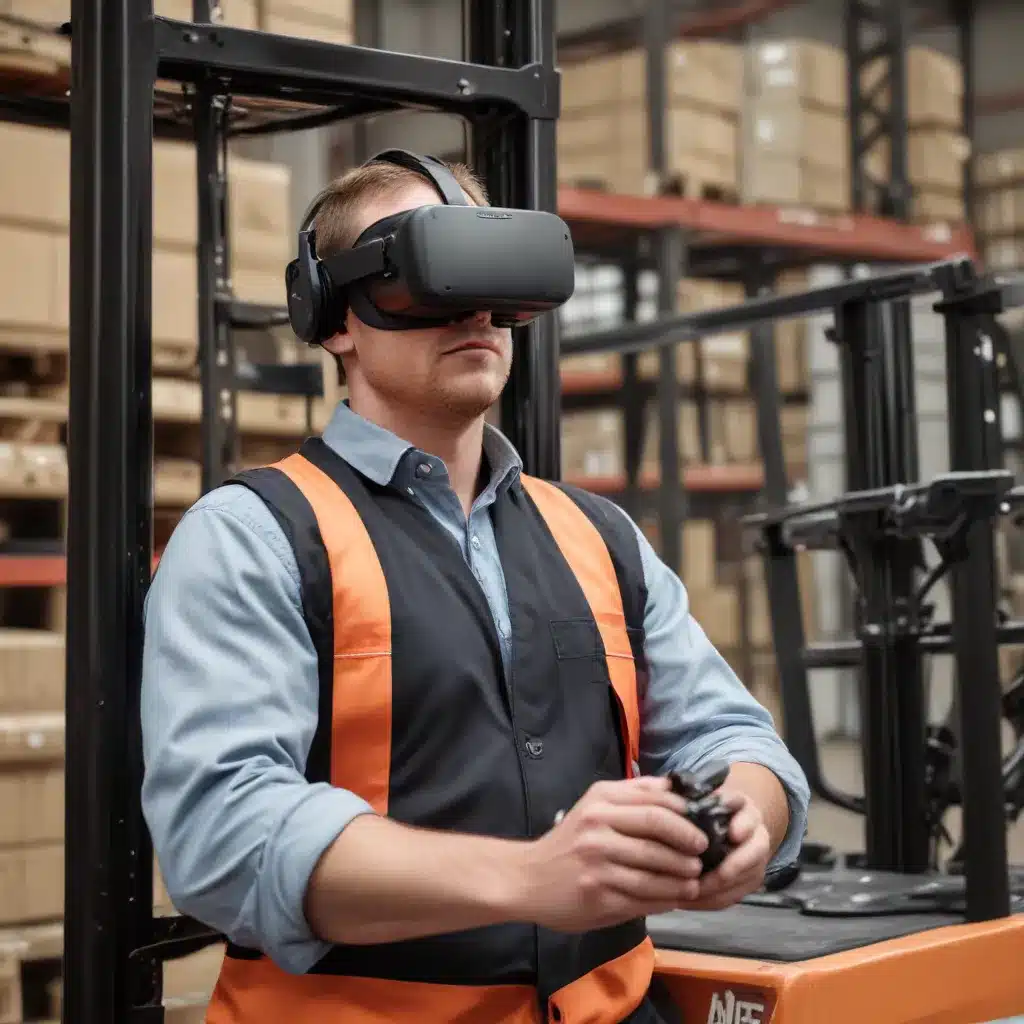
The Evolution of Forklift Operator Training
The forklift industry has long recognized the critical importance of comprehensive operator training programs to promote safety, efficiency, and productivity within warehousing and logistics operations. As technology continues to advance, the landscape of forklift operator training is undergoing a remarkable transformation, with innovative solutions leveraging virtual reality (VR) and simulation emerging as game-changers.
Traditionally, forklift operator training has relied on a combination of classroom instruction, hands-on practice, and on-the-job experience. While this approach has proven effective, it also comes with inherent challenges, such as the need for dedicated training facilities, the risk of accidents during practice sessions, and the time required to achieve proficiency.
However, the introduction of VR and simulation-based training is revolutionizing the way forklift operators are trained, offering a safer, more efficient, and more engaging learning experience.
The Emergence of VR Forklift Simulators
One of the pioneering solutions in this space is the Raymond Virtual Reality Simulator, which was recognized with the MHI Innovation Award for Best New Innovation in 2018. This innovative system allows forklift operators to enter a simulated warehousing environment using an existing Raymond® forklift, without the need for a dedicated training vehicle.
“To attract new talent to the industry and rapidly reach high proficiency levels, the Raymond Virtual Reality Simulator ensures lift truck operators are coached quickly and confidently — all before reaching the warehouse floor,” said Michael Field, CEO of The Raymond Corporation.
By leveraging the company’s patented Simulation Port (sPort) technology, the Raymond VR Simulator seamlessly integrates with the forklift’s existing systems, providing a realistic and immersive training experience. This approach not only eliminates the need for separate training vehicles but also allows operators to build muscle memory and develop skills on the equipment they will be using in the actual work environment.
Advantages of VR Forklift Training
The adoption of VR and simulation-based forklift training solutions offers a range of benefits that are transforming the way operators are prepared for their roles:
-
Enhanced Safety: VR training environments allow operators to learn and practice in a risk-free, controlled setting, reducing the likelihood of accidents and injuries during the training process.
-
Accelerated Skill Development: Simulation-based training enables operators to repeatedly practice complex maneuvers and gain proficiency more quickly than traditional methods, ultimately improving their overall performance.
-
Cost Savings: By utilizing existing forklift assets and eliminating the need for dedicated training vehicles, VR-based solutions help organizations reduce the total cost of ownership associated with operator training.
-
Improved Retention and Engagement: The immersive and interactive nature of VR-based training has been shown to enhance operator engagement, leading to better knowledge retention and a more motivated workforce.
-
Versatility and Scalability: VR simulators can be customized to replicate specific warehouse layouts, forklift models, and operational scenarios, making them adaptable to the unique needs of different organizations.
Forklift Operator Training Trends and Innovations
As the industry continues to evolve, we are witnessing a surge of innovative solutions and trends that are shaping the future of forklift operator training:
Integrating Augmented Reality (AR) for Real-World Guidance
While VR simulations provide a highly immersive training experience, the integration of augmented reality (AR) technology offers additional benefits. AR-enabled forklift training systems can superimpose digital information and instructions directly onto the operator’s field of vision, enhancing their situational awareness and decision-making abilities in the actual work environment.
Leveraging Gamification for Engaging Learning
Forklift training providers are increasingly incorporating gamification elements into their VR and simulation-based programs. By introducing game-like features, such as scoring systems, leaderboards, and challenges, these solutions are making the learning process more engaging and motivating for operators, leading to better skill retention and a more enjoyable training experience.
Predictive Analytics for Tailored Training
The integration of data analytics and machine learning into forklift training platforms is enabling the development of personalized learning paths. By analyzing an operator’s performance and progress, these systems can identify areas for improvement and customize the training content to address individual strengths and weaknesses.
Remote and Cloud-Based Training Options
The COVID-19 pandemic has accelerated the demand for remote and cloud-based forklift training solutions, allowing organizations to provide operator education and assessment without the need for physical on-site presence. This trend aligns with the growing focus on flexible and adaptable training models that can accommodate the evolving needs of the industry.
Preparing for the Forklift Operator of the Future
As the forklift industry continues to embrace technological advancements, the role of the forklift operator is also evolving. Operators of the future will need to be skilled not only in the physical operation of the equipment but also in the effective utilization of the digital tools and technologies that are transforming the industry.
By leveraging VR and simulation-based training solutions, organizations can better prepare their forklift operators for the challenges and opportunities of the future. These innovative training methods not only enhance safety and efficiency but also contribute to the development of a more skilled, adaptable, and engaged workforce – essential for navigating the dynamic landscape of warehousing and logistics.
As the industry leader in Forklift Reviews, we continue to closely monitor the latest trends and innovations in forklift operator training, providing our readers with practical insights and in-depth analysis. By staying at the forefront of these advancements, we can empower organizations and forklift operators to embrace the transformative power of VR and simulation-based training, ultimately driving the industry towards a safer, more efficient, and more sustainable future.

